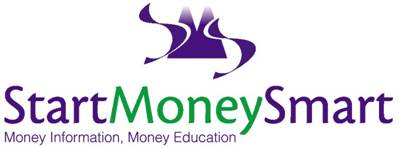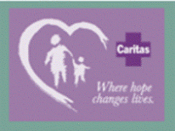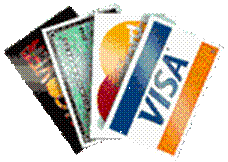
Help us help young people
StartMoneySmart
Four kids make a workshop!
- How to maintain a checking account?
- How do credit cards work?
- What will come out of their paychecks?
- How to stay organized so bills get paid?
Workshop Pricing
Prices are based on number of students in attendance.
| Number | Price per class |
|---|---|
| 4 - 6 | $50 |
| 7 - 11 | $40 |
| 12 - 21 | $35 |
| Over 22 | $30 |
Workshops can include classes in succession or over several days. Reduced prices for non-profit organizations. Visa/MasterCard/American Express accepted.
What's been going on...
Start Money Smart has been asked back to the Women @ Work Program!

St. Mary's Women & Children's Center offers various programs to help empower women by providing resources and skills necessary to build stable, healthy lives in the community. The Women @ Work program is an excellent job skills training program for homeless and low income women. Jameel Webb-Davis was asked to return and talk to the women regarding financial literacy. Read more about the program.
What's coming up...
Upcoming StartMoneySmart workshops...
Haverhill High School
Nov. 7, 8, 14, 15, 28, 29, Dec. 5, 6
VIP program at Haverhill has asked SMS to return and offer another 4-week workshop throughout November and December.
Salvation Army
Nov. 7
The Life Skills program offered to young adults has asked SMS to talk about Money Myths.
Eridania Nievs birthday
Nov. 11
At this birthday party you'll get more than just cake and conversation. Eridania wants to share financial literacy with her friends and family. She's asked SMS to do a presentation during the party. What a fabulous idea!
Start Money Smart workshop in Medford
Nov. 11, 12
Local mother gathers her four daughters as well as neighbors kids together for a workshop right out of a home in Medford.
Crittenton Women's Union
Nov. 13, 20, 27, Dec. 4, 11
The Fresh Start program has asked SMS to return and offer a five week program on financial literacy.
St. Mary's Women & Children's Center
Nov. 28, Dec. 5
The Women @ Work program has asked SMS to return and complete the four week program on financial literacy.
Natick High School's parents
Dec. 3
A METCO representative has asked that SMS come and talk to parents regarding financial literacy.
Natick High School students
Dec. 18
SMS will be offering a financial literacy workshop to METCO students during Kwanza week at the high school.
See what's new on the website!
- Support Start Money Smart by making a donation on-line! Click here for more information.
- MJOrganizers has its own separate website focused at helping small business owners and organizations stay financially organized! Check it out!
- Review other organizations with financial literacy information, tools for parents, and articles to review. Check out our new Resources link.
- Our Blog is coming soon - all your seminar questions answered!
Quick Links...
- Our Website
- Our Programs
- About Us
- Join our mailing list


I hear this question so often, it warranted special attention in this month's newsletter. Don't be surprised by thinking this information is understood. I speak with financial advisors, low-income women, affluent college kids - they all ask the same question. And, surprisingly, there are few resources available that provide the answer.
When using a debit card, what's the difference between saying "debit" or "credit" at the store?
Some people don't realize they have this option. And some think if they say "credit" they'll get a bill, instead of a deduction from their checking account. Others think it makes no difference, which isn't exactly true either.
If you say "debit"
- This is frequently called a "point of sale" transaction
- Requires you to type in a PIN number
- Money will be deducted from your checking account immediately
- Some banks charge the account holder a fee for "point of sale" transactions
If you say "credit"
- Requires a signature (depending on the amount)
- A hold is placed in your account for the amount for about 48 hours. Money isn't actually deducted until merchant submits information to bank
- Banks make money from merchants on credit transactions, so they typically don't charge account holder fees.
If your question is "What's the difference between a debit card and a credit card?" There are several good articles on the internet on this topic. Search "Debit cards, Credit cards, differences " to find the answers.
"What should I teach my kids about personal finance?"
This question is what most parents should be asking themselves, because the truth is, their kids most likely are not going to learn it in school.
Many parents feel that if they teach their kids to save their money and they make sure they get a good education, they'll be okay. Don't assume that if your kids get a good paying job, they'll understand how to manage their money. Financial literacy is more than the accumulation of money.
So what are some ways parents can teach kids financial literacy?
INCLUDE YOUR KIDS IN FINANCIAL DECISIONS!
When I talk to parents about including their kids in what's going on financially with the household, I get one of three responses:
1) I'm the parent, they're the child. Money matters is a grown up issue and kids shouldn't be involved.
2) Why would I want to burden my child with that kind of stress?
3) If I told my kids about the bills we have, they would say it wasn't their problem as they weren't the ones to make the decisions about what to buy!
Kids can handle more than you think. People tend to believe that managing money is something you'll just figure out how to do when you become an adult. But we do nothing to prepare kids for this responsibility as they grow. Don't let your belief that kids are too immature to handle this kind of information keep them in the dark. They must be prepared for managing money, and the best way to learn that is through their parents.
Stress is a choice. We work so hard to protect and shelter our kids from the trials of life, that we think this is benefiting them some how. Managing money can be a stressful experience, but it's a necessary life skill. Show your kids how you handle a stressful money situation so they can be prepared to do the same as they get older.
Bring in the mail. The best way to get your kids involved with understanding household finances is to have them bring in the mail. That's it. Choose the most irresponsible child you have, and make it their new chore to bring in the mail everyday. It's their job to sort through it and identify the junk. Create a list of expected bills and give that to your child. Have your child check off each bill as it's received, and keep them all together in a file. When all are received, have him or her bring the file to you so you can pay the bills.
Kids need to see what actually goes on financially to run a household. Let them see that maxed out Visa bill. Show them what bills didn't get paid because you had to repair the water-heater. Give them an understanding of managing all the paperwork involved with paying bills. This is invaluable life skills that they'll need in the next few years.
And for the parent that says, "my child would never be responsible enough to manage this task." I say to you, if they can't handle this task at the age of 16, how do you expect them to handle it at 23?
Start Money Smart offers workshops for adults, parents, and teenagers that address these and other topics regarding financial literacy. Check out our website for more information.






